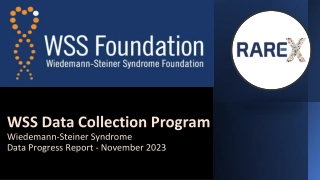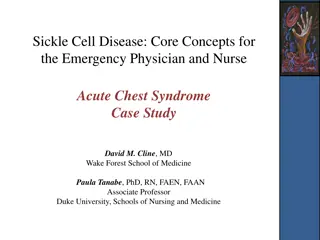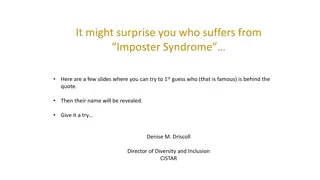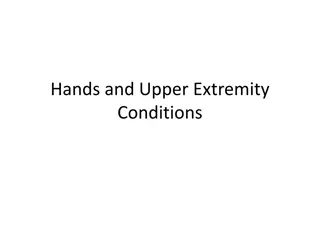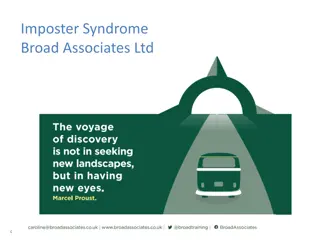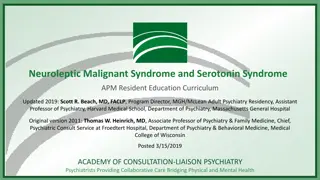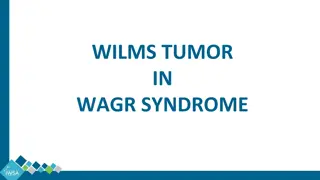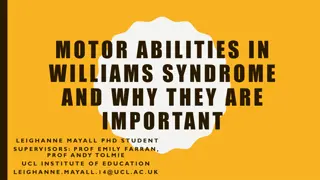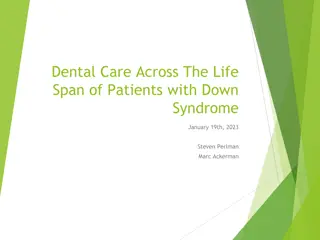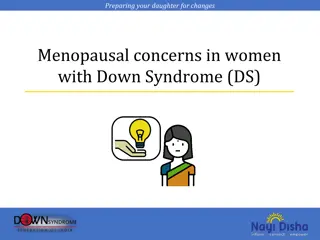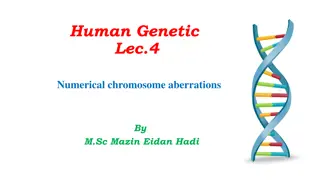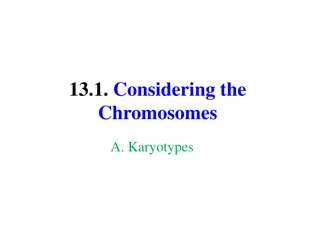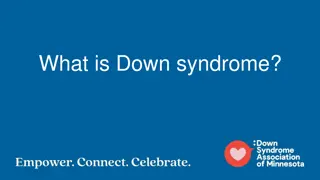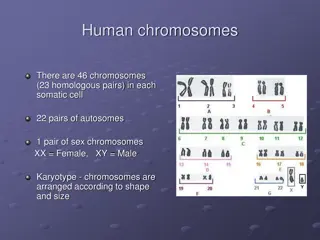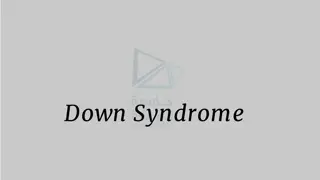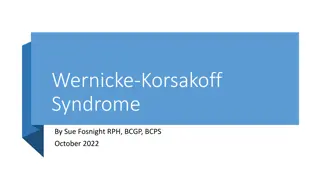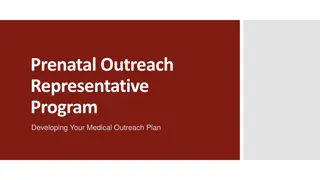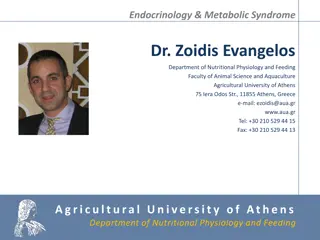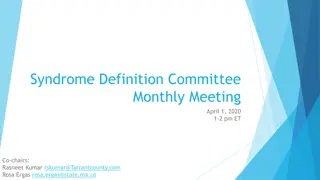Down Syndrome
Down syndrome, a neurodevelopmental syndrome named after John Langdon Haydon Down, is caused by trisomy 21. Jerome Lejeune's discovery of the extra chromosome revolutionized our understanding. This guide explores the genetics behind Down syndrome, the implications for cell division and health, and common medical issues faced by individuals with Down syndrome. From heart conditions to autoimmune diseases, this comprehensive overview sheds light on the multifaceted nature of Down syndrome.
Uploaded on Feb 24, 2025 | 0 Views
Download Presentation

Please find below an Image/Link to download the presentation.
The content on the website is provided AS IS for your information and personal use only. It may not be sold, licensed, or shared on other websites without obtaining consent from the author.If you encounter any issues during the download, it is possible that the publisher has removed the file from their server.
You are allowed to download the files provided on this website for personal or commercial use, subject to the condition that they are used lawfully. All files are the property of their respective owners.
The content on the website is provided AS IS for your information and personal use only. It may not be sold, licensed, or shared on other websites without obtaining consent from the author.
E N D
Presentation Transcript
Down Syndrome Neurodevelopmental syndrome named for John Langdon Haydon Down who first described the physical and behavioral characteristics in 1862
Down Syndrome 1958 Jerome Lejeune and his team identified trisomy 21 (47 chromosomes-one extra chromosome 21 in cells) as cause of Down Syndrome Only 2 years after it was discovered that the typical number of humanchromosomes was 46
Meiosis Watch Video Here https://www.youtube.com/watch?v=nMEyeKQClqI https://fthmb.tqn.com/3GgfIRH-c1Gh8znVT4e1vcJwzFo=/768x0/filters:no_upscale()/about/lilyana2-56a09a4a3df78cafdaa325be.gif
Down Syndrome Typical cell division- 46 chromosomes Non-dysjunction cell division- 47 chromosomes
Down Syndrome 90-95% full trisomy from nondysjunction of maternal origin during meiosis 2-4% translocation (usually 13-15 or 21-22) 2-4% mosiacism nondysjunction occurs after fertilization resulting in two different cell lines
Health in Down Syndrome Heart: 40-60% born with abnormal hearts
Health in Down Syndrome Eyes: cataracts and glaucoma 5% Cataracts 1% Glaucoma Near-sightedness Ears: hearing loss 30-75% by preschool
Health in Down Syndrome Thyroid: low thyroid 30% by 25 years Gut: celiac disease (wheat allergy) 4-7% Immune dysfunction: autoimmune/leukemia
Down Syndrome Brain: Seizures 8%-50% by 50 years Sleep apnea Developmental delays/learning differences
Development in Down Syndrome Social and self help skills usually on track early and often remain strengths Motor skills (sitting, walking, running) delayed due to low muscle tone, joints Language skills often start on time, but usually slow in second year and affect talking more than understanding
Early Communication Skills in DS 6.10% 18.60% Gestures (range: 7% - 46%) 23.60% Vocalizations (range: 11% - 76%) Single Words (range: 6% - 53%) Multiple Words (range: 0%- 34%) 51.70%
Down Syndrome Academic/cognitive skills usually lower than adaptive/every day skills, which show improvement through mid-adulthood Onset Alzheimer dementia (losing memory and skills) 10 years earlier than general population Diabetes/obesity Less cardiovascular disease Lower blood pressure
Development in Down Syndrome Social supports, cognitive skills, emotional and physical health predict adaptive function and employment
Down Syndrome Kumin et al (2015) J of Applied Research in Intellectual Disability 57% employed (3% full time) 20% volunteered 3% self-employed 30% unemployed
Down Syndrome and other diagnoses Autism spectrum disorders thought to occur in 10% of people with Down Syndrome ADHD thought to occur in 6-8% of people with Down Syndrome Other behavioral diagnoses in 10-15%
Research at MIND: Vocabulary Kover et al. J Speech, Lang, Hear Res (2012)
Research at MIND:Language Syntax Kover et al. J Speech, Lang, Hear Res (2012)
EXPRESSIVE LANGUAGE SAMPLING CONSORTIUM SITES (n = 36-60 per site)
Research in Down Syndrome Alzheimer neuropathology Acetylcholinesterase inhibitors? Studies showing improvements in speech, communication, attention and mood stability with donepezil (Aricept) in open label study, less significant differences in DB/PC study on dementia and adaptive behaviors but still some improvements NMDA receptor antagonists? Studies with Memantine not clear re: benefit
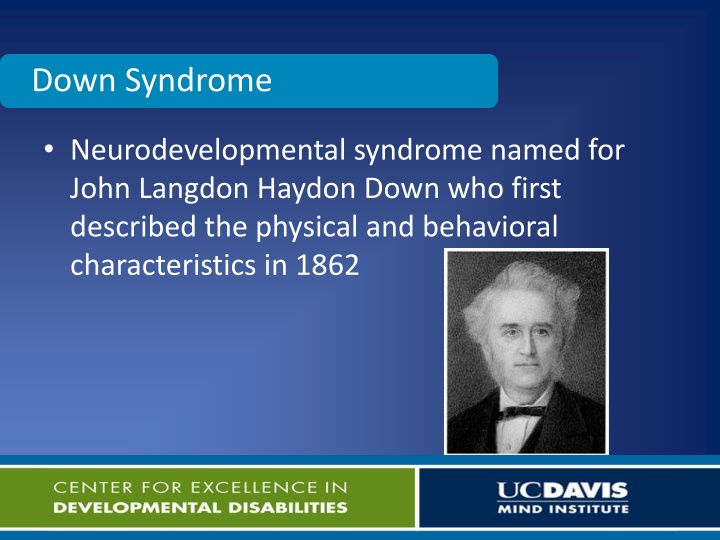

![❤[PDF]⚡ Zee Zee Does It Anyway!: A Story about down Syndrome and Determination](/thumb/20462/pdf-zee-zee-does-it-anyway-a-story-about-down-syndrome-and-determination.jpg)
